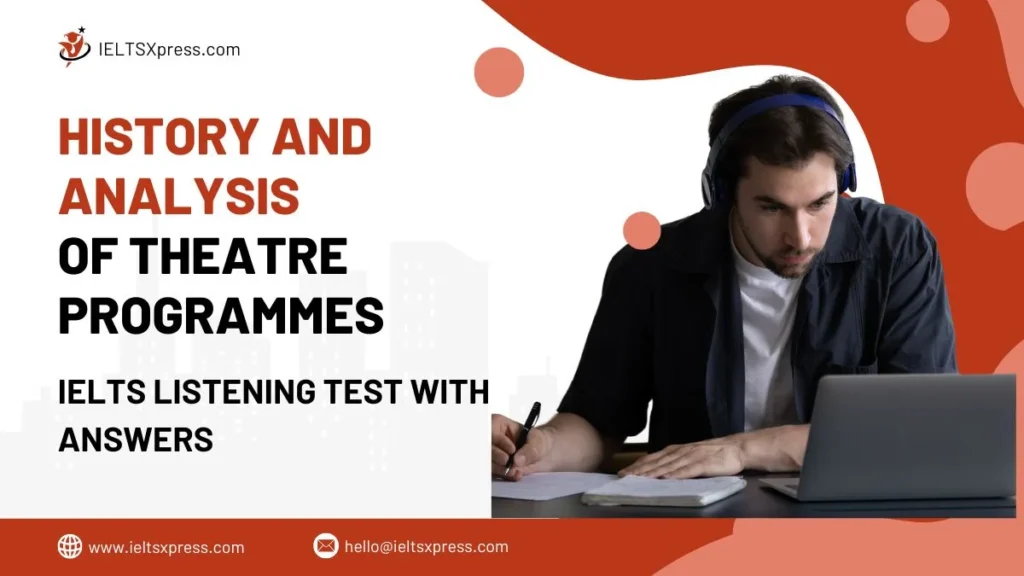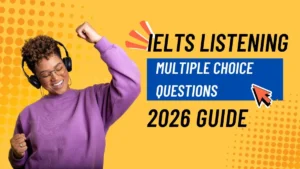History and Analysis of Theatre Programmes IELTS Listening with Answers
The IELTS Listening test often includes academic topics that require a good understanding of context, detail, and speaker intent. One such listening passage titled History and Analysis of Theatre Programmes explores how theatre programmes have evolved over time, their design, content, and their significance in preserving cultural history. This recording typically appears in Part 4 of the IELTS Listening test and is structured as a university-style lecture. It challenges candidates to follow complex ideas, track chronological developments, and pick out key terms.
In this section, we provide a full set of answers along with helpful tips and explanations to help you tackle this passage effectively and improve your overall listening score.
Questions 21 – 30
History and Analysis of Theatre Programmes
Questions 21–26
Choose the correct letter, A, B or C
21 Finn was pleased to discover that their topic
A was not familiar to their module leader.
B had not been chosen by other students.
C did not prove to be difficult to research.
22 Maya says a mistaken belief about theatre programmes is that
A theatres pay companies to produce them.
B few theatre-goers buy them nowadays.
C they contain far more adverts than previously.
23 Finn was surprised that, in early British theatre, programmes
A were difficult for audiences to obtain.
B were given out free of charge.
C were seen as a kind of contract.
24 Maya feels their project should include an explanation of why companies of actors
A promoted their own plays.
B performed plays outdoors.
C had to tour with their plays.
25 Finn and Maya both think that, compared to nineteenth-century programmes, those from the eighteenth century
A were more original.
B were more colourful.
C were more informative.
26 Maya doesn’t fully understand why, in the twentieth century,
A very few theatre programmes were printed in the USA.
B British theatre programmes failed to develop for so long.
C theatre programmes in Britain copied fashions from the USA
Questions 27–30
What comment is made about the programme for each of the following shows?
Choose FOUR answers from the box and write the correct letter, A–F, next to Questions 27–30.
Comments about the programme
A. Its origin is somewhat controversial
B. It is historically significant for a country
C. It was effective at attracting audiences
D. It is included in a recent project
E. It contains insights into the show
F. It resembles an artwork
Show
27. Ruy Blas _________
28. Man of La Mancha _________
29. The Tragedy of Jane Shore _________
30. The Sailors’ Festival_________
History and Analysis of Theatre Programmes Listening Answers
21. B
22. A
23. C
24. A
25. C
26. B
27. F
28. E
29. B
30. D
Also Check – Developing Food Trends Listening Answers




